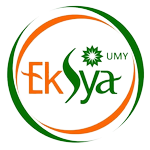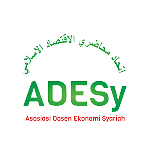Analysis of The Islamic Leadership, Islamic Work Ethics and Intellectual Intelligence on Employee Performance with Islamic Organization Culture as Moderated Variables
DOI:
https://doi.org/10.18196/jiebr.v2i1.21Keywords:
Employee Performance; Islamic Leadership; Islamic Work Ethics; Intellectual Intelligence; Islamic Organization CultureAbstract
This study aims to determine the effect of Islamic leadership, Islamic work ethic, and intellectual intelligence on employee performance with Islamic organizational culture as a moderating variable. The sample selection in this study was carried out by purposive sampling. Collecting data using a questionnaire. Based on the criteria, 120 respondents became the samples. Respondents must meet requirements such as Islam, a bachelor’s degree, and have 3 years of experience in Islamic banking. Hypothesis analysis using SPSS. The analytical technique used in this study is multiple regression analysis or Moderate Regression Analysis (MRA) to examine the interaction between variables. The results of this study indicate that Islamic Leadership, Islamic Work Ethics and Intellectual Intelligence can affect employee performance. Then Organizational Culture is not able to moderate the influence of Islamic Leadership and Islamic Work Ethics on Employee Performance, but organizational culture is able to moderate Intellectual Intelligence on Employee Performance.
References
Agus Kadek Santika Putri, 2016. “Pengaruh Intellectual Intelligence, Kecerdasan Emosional, Kecerdasan Spiritual, Komitmen Organisasi terhadap Kinerja Auditorâ€. E-Jurnal Akuntansi Universitas Udayana Vol 17.2 November
Ajmal, M. B., & Irfan, S. 2014. “Understanding the Moderating Role of Islamic Work Ethics between Job Stress and Work Outcomesâ€. Journal of Business and Management, 16(1), 62-67.
Aswadi M, Lalu Suparman, Zainal Abidin, 2017. “Analisis Pengaruh Islamic Leadershipi dan Islamic Work Ethicsi terhadap Kinerja Islami Pegawai dengan Budaya Organisasi Islami sebagai Moderating Variabelâ€. JMM
Boehm, M., 2011. “Factor Structure of the Wechsler Intelligence Scale for Children-Fourth Edition among Students with Attention Deficit Hyperactivity Disorderâ€. Thesis. Arizona State University
Desky, H. 2014. ''Pengaruh Islamic Work Ethicsi dan Gaya Kepemimpinan Terhadap Employee Performance Rumah Makan Ayam Lepaas Lhokseumawe'', INFERENSI Jurnal Penelitian Sosial Keagamaan, VIII (2), 459-478.
Gibson Ivancevich, Donnelly. 1996. “Organisasi Perilaku Struktur Prosesâ€.Jakarta : Binarupa Aksara. Alih Bahasa : Nunuk Adriani. Editor : Lyndon Saputra
Giri, E.E., Nimran, U., Hamid, D. & Musadieq, M.A. 2016, ''The Effect of Organizational Culture and Organizational Commitment to Job Involvement, Knowledge Sharing, and Employee Performance: A Study on Regional Telecommunications Employees of PT Telkom East Nusa Tenggara Province, Indonesia'', International Journal of Management and Administrative Sciences (IJMAS), III (4), 20-33
Ghozali, Imam. 2013. “Aplikasi Analisis Multivariate dengan program IBM SPSS21â€. Badan penerbit Universitas Diponegoro. Yogyakarta.
Haryanti, S. 2015.''Pengaruh Gaya Kepemimpinan, Budaya Organisasi, dan Kompetensi Karyawan Terhadap Kinerja dengan Komitmen Organisasional Sebagai Variabel Mediasi'', Jurnal Bisnis & Manajemen, XV (1), 33 - 44.
Hofstede, G. 1991. “Cultures and Organizations: Software of the Mindâ€. Alih Bahasa: Hamid. Penerbit McGraw-Hill Book Company , London.
Kimiyayi Masoume & Saeed Daryaee, 2016. “Relationship between Spiritual Intelligence, Emotional Intelligence with Occupational Performance the Guidance School Teachers Occupational Performance in Shiraz Educational System Organizationâ€. International Journal of Humanities and Cultural Studies Vol (III) 2
Lina, D. 2014.''Analisis Pengaruh Kepemimpinan dan Budaya Organisasi Terhadap Kinerja Pegawai dengan Sistem Reward Sebagai Variabel Moderating'', Jurnal Riset Akuntansi dan Bisnis, XIV (1), 77-97.
Lousyiana, T.T. & Harlen. 2015. ''Pengaruh Gaya Kepemimpinan dan Budaya Organisasi Terhadap Kepuasan Kerja dan Kinerja Perawat di Rumah Sakit Islam Ibnu Sina Pekanbaru''. Jurnal Tepak Manajemen Bisnis, VII (3), 509-521.
Mangkunegara, Anwar Prabu. 2004. “Manajemen Sumber Daya Manusia Perusahaanâ€. Bandung : PT. Remaja Rosdakarya.
Mangkunegara, Anwar Prabu. 2005. “Perencanaa dan Pengembangan Sumber Daya Manusiaâ€. Bandung: Refika Aditama.
Manullang, M. 1992. “Dasar – Dasar Manajemen, Cet. Kesebelasâ€. Jakarta :Ghalia Indonesia.
Mappamiring, P. 2015.''Effect of Cultural Organization, Leadership and Motivation of Work on the Performance of Employees (Studies in Islamic Banking in Makassar)'', International Journal of Academic Research in Business and Social Sciences, V (12), 140-166
Mauliza Putri, Yusuf Rusli, T Roli Ilhamsyah, 2016. “Pengaruh Islamic Work Ethicsi dan Gaya Kepemimpinan Transformasional terhadap Komitmen Organisasional dan Implikasinya pada Kinerja Pegawai Wilayatul Hisbah Kota Banda Acehâ€. Jurnal Perspektif Ekonomi Darussalam Vol 2 (II)
Memon Rasheed K, 2014. “Effect of Leadership Styles on Employee Performances: Integrating the Mediating Role of Culture, Gender and Moderating Role of Communicationâ€. International Journal of Management Sciences and Business Research Vol(III) Issue(VII)
Moeheriono. 2013. “Competency-Based Performance Measurementâ€. Jakarta: PT. King Grafindo Persada
Nurliani, Hadi S, Afi Rachmat S, 2019. “Pengaruh Intellectual Intelligence, Kecerdasan Emosional dan Kecerdasan Spiritual terhadap Employee Performance Rumah Sakit Islam Malangâ€. Jurnal Riset manajemen
Stoner, James A.F., R. Edward Freeman, Daniel R. Gilbert Jr. 1996. Manajemen, Diterjemahkan: Sindoro. Jakarta: PT Prenhalindo.
Sutono & Budiman, F.A. 2009. ''Pengaruh Kepemimpinan dan Islamic Work Ethicsi Terhadap Employee Performance Di Koperasi Jasa Keuangan Syari’ah Baitul Maal Wat Tamwil di Kecamatan Rembang''. Analisis Manajemen, IV (1), 11-28.
Tasmara. 2002. “Membudayakan Islamic Work Ethicsiâ€. Jakarta: Gema Insani.
Thoha Miftah. 2006. Leadership in Management. PT. King Grafindo Persada: Jakarta
Tongo-Tongo, Y. 2014. "Pengaruh Gaya Kepemimpinan Dan Disiplin Kerja Terhadap Kinerja Anggota Detasemen A Pelopo Satuan Brigade Mobil Kepolisian" Jurnal Riset Bisnis dan Manajemen, II (4), 103-07.
Wirawan. 2007. “Budaya dan Iklim Organisasi, Teori Aplikasi dan Penelitianâ€. Jakarta: SalembaEmpat.
Downloads
Published
How to Cite
Issue
Section
License
Copyright (c) 2022 Journal of Islamic Economic and Business Research

This work is licensed under a Creative Commons Attribution-NonCommercial 4.0 International License.
Journal of Islamic Economic and Business Research has CC-BY NC or an equivalent license as the optimal license for the publication, distribution, use, and reuse of scholarly work for non-commercial purpose. The non-commercial use of the article will be governed by the Creative Commons Attribution license as currently displayed on Creative Commons Attribution-NonCommercial 4.0 International License
Creative Commons License




